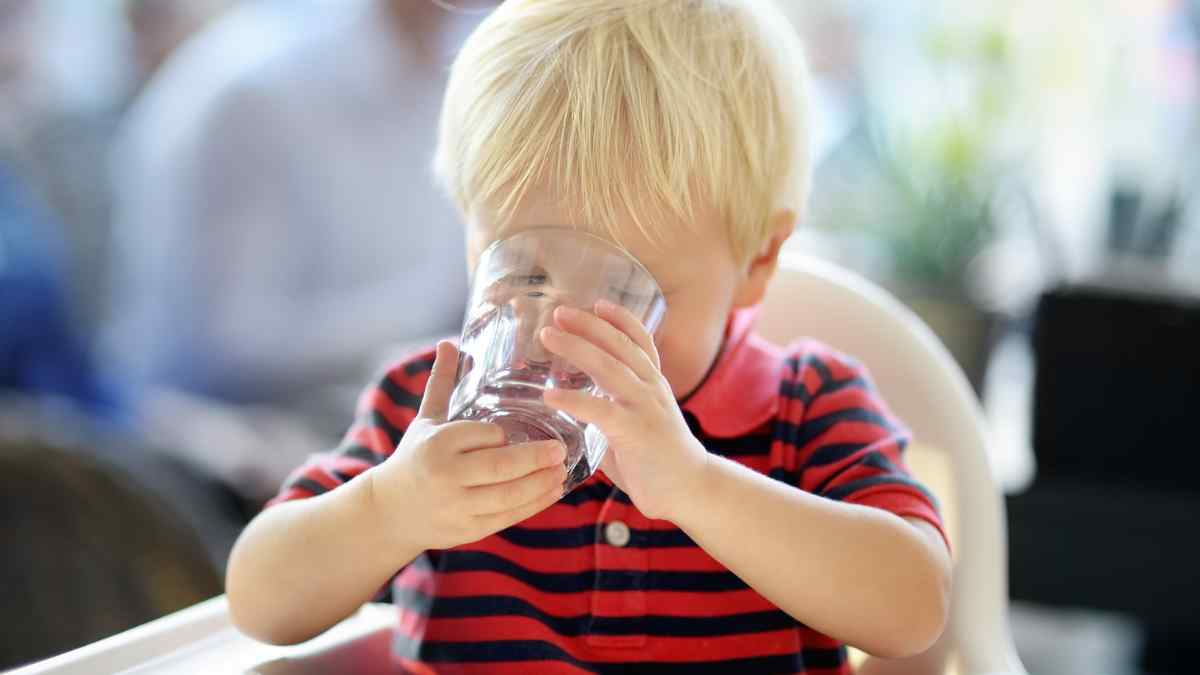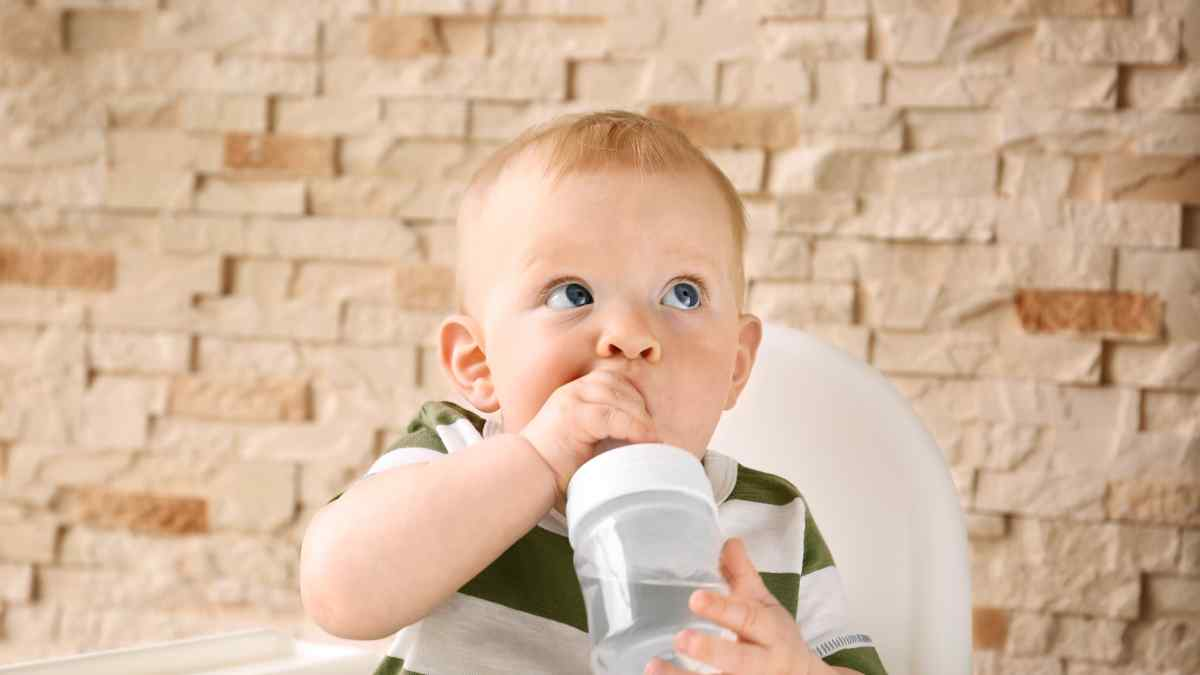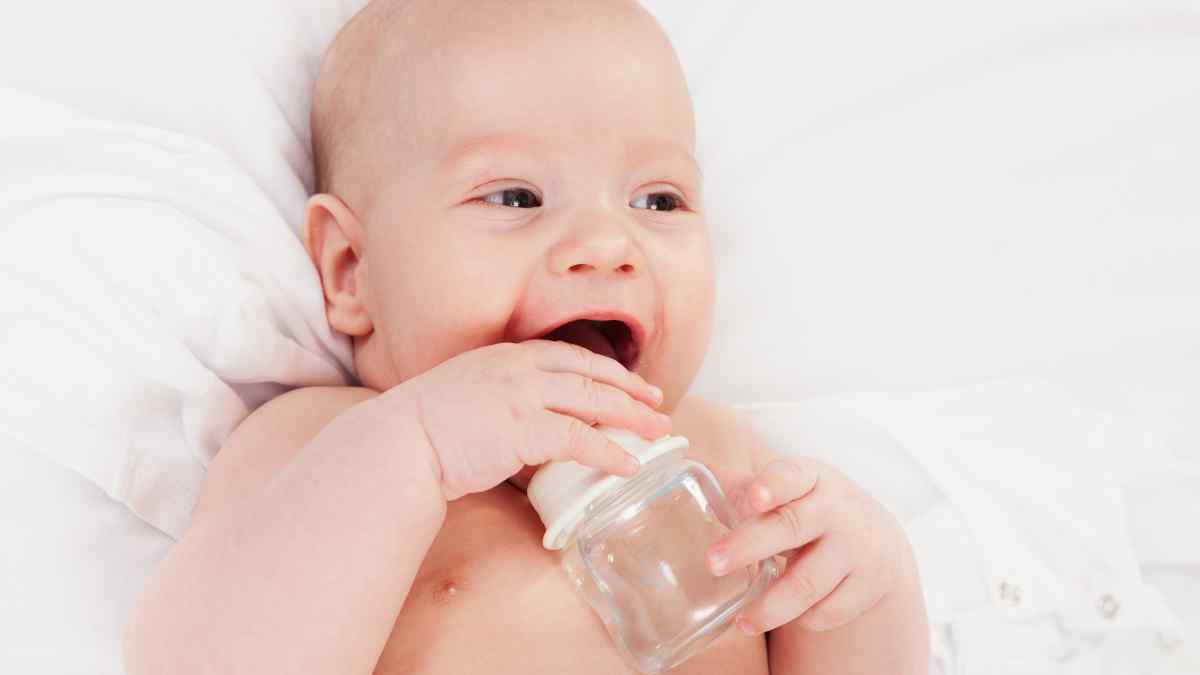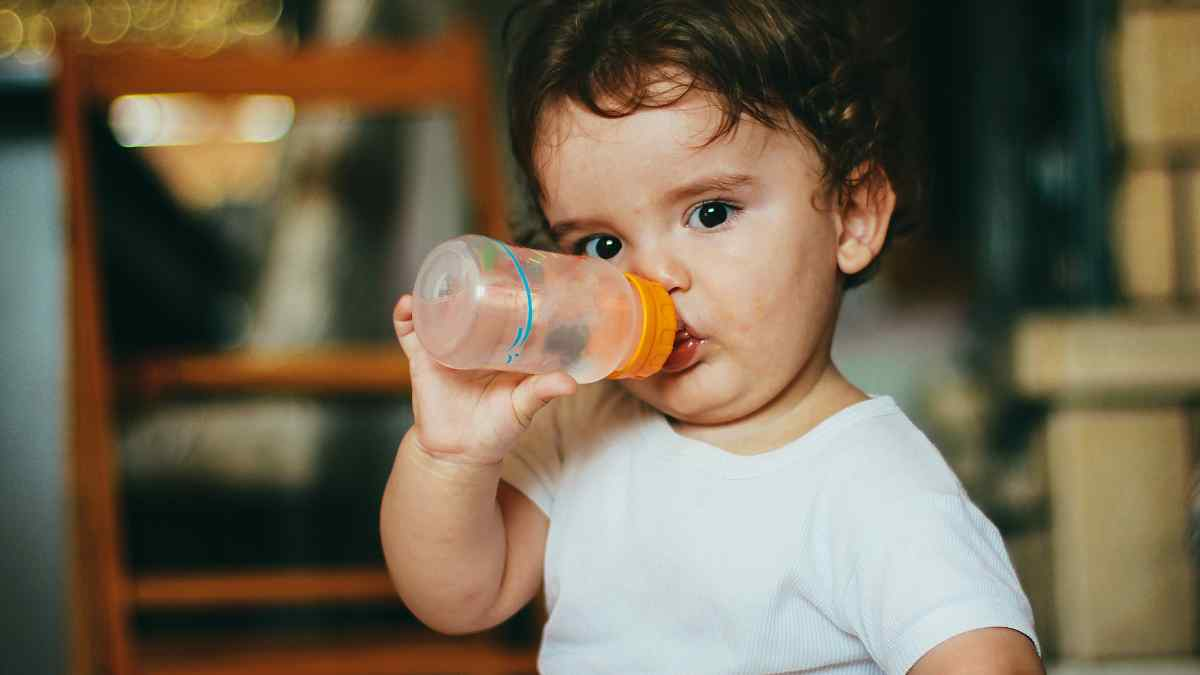Ensuring the safety and well-being of your baby is a paramount concern for every parent. While many aspects of infant care are well-established, the safe storage of water, a fundamental necessity for your child’s hydration and formula preparation, can often be overlooked. Water is a critical component of a baby’s daily routine, and its quality and safety should never be compromised.
When you read this article, you will get to explore seven essential tips to store baby water safely, providing you with the knowledge and guidance you need to guarantee that the water your little one consumes is free from contaminants and meets the highest standards of hygiene. From selecting the right water source to maintaining a rigorous hygiene routine, these tips will empower you to safeguard your baby’s health and ensure their access to clean and safe water at all times.

Choose the Right Water Source
In a world that centers around baby water storage tips, one of the most critical decisions you’ll make is choosing the right water source when preparing concentrated liquid formula. This choice can significantly impact your baby’s well-being, and there are key factors to consider to ensure the safety of the water you provide for your little one. Let’s delve into the significance of selecting a safe water source, the types of water sources suitable for baby consumption, and the importance of water quality testing.
The Significance of Selecting a Safe Water Source
Selecting a safe water source for your baby’s ready-to-feed formula is paramount. It’s not just about providing hydration; it’s about protecting your baby from potential harm. Here’s why it matters:
- Avoiding Contaminants: Safe water sources help prevent harmful contaminants, such as bacteria, lead, and other impurities, from entering your baby’s system. Babies have developing immune systems, making them more vulnerable to waterborne diseases.
- Preventing Waterborne Illnesses: Unsafe water can lead to diarrhea, which can be especially dangerous for infants due to their weakened immune systems. Ensuring a safe water source for preparing formula minimizes the risk of your baby getting sick.
- Supporting Healthy Growth: Proper hydration is essential for a baby’s growth and overall well-being. By choosing a safe water source, you contribute to your baby’s healthy development.
Types of Water Sources Suitable for Baby Consumption
Not all water sources are created equal. When it comes to your baby, some are safer than others. Here are the types of water sources suitable for baby consumption:
- Tap Water: In many places, tap water is safe for baby consumption, especially when preparing formula. However, you should know your local water quality, and it may need to be treated or tested.
- Bottled Water: Using low-fluoride bottled water is a popular choice for baby formula preparation, especially if your tap water isn’t suitable. Always check the label to ensure it’s safe for babies.
- Boiled Water: Boiling tap water is an effective way to make it safe for your baby, as it kills harmful microorganisms. Be sure to cool it to an appropriate temperature before using it for formula.
Importance of Water Quality Testing
Water quality testing is an essential step in ensuring that the water you provide for your baby is safe. Here’s why it’s crucial:
- Peace of Mind: Testing your water source gives you confidence in its safety. You can consult your local health department or the Environmental Protection Agency for guidance on testing.
- Risk Mitigation: It helps identify any potential contaminants or issues with your water source. This proactive approach is vital in protecting your baby from harm when preparing powdered formula.
- Consistent Quality: Regular testing ensures that the quality of the water remains consistent, allowing you to make informed choices about its use for your baby.

Clean and Sanitize Containers
In the journey to store baby water safely for prepared formula, selecting the right water source is only the beginning. Equally important is the cleanliness and sanitation of the containers that hold this precious resource for your little one. Clean containers play a vital role in ensuring the purity and safety of the water, and knowing how to store baby water safely is essential. In this column, we will explore the role of clean containers in water storage, provide a step-by-step guide to cleaning and sanitizing baby water containers, and discuss recommended cleaning products and techniques.
The Role of Clean Containers in Water Storage
Clean containers for prepared formula are the unsung heroes of safe baby water storage. Here’s why their role is crucial:
- Preventing Contamination: Contaminated containers can introduce harmful microorganisms and impurities into your baby’s water supply. Clean containers serve as a barrier against these contaminants.
- Maintaining Freshness: Clean containers help maintain the freshness and quality of the stored water. Without proper cleaning, water can develop an off-putting taste or odor.
- Protecting Your Baby: Babies have delicate immune systems, and any exposure to unclean containers can put them at risk of waterborne illnesses. Clean containers are your baby’s first line of defense.
Step-by-Step Guide to Cleaning and Sanitizing Baby Water Containers
To ensure your baby’s water is stored safely, follow these steps for cleaning and sanitizing containers:
1. Gather Supplies: You’ll need mild dish soap, a bottle brush or a special container-cleaning brush, and a clean, designated container for your baby’s water if you’re planning to use it for preparing powdered infant formula.
2. Rinse Thoroughly: After each use, rinse the container with cold running water to remove any remaining formula or residue.
3. Wash with Soap: Use the bottle brush and mild dish soap to clean the container’s interior and exterior thoroughly. Pay special attention to any nooks or crevices.
4. Rinse Again: Rinse the container with hot water to remove all soap residue.
5. Sanitize: There are several ways to sanitize containers for infant formula. You can boil them in hot water for 5 minutes, use a sterilizer, or follow the manufacturer’s instructions. Alternatively, you can use a baby-safe, chemical-free sanitizing solution.
6. Air Dry: Allow the container to air dry on a clean and sanitized surface. Avoid using towels or cloths that may introduce bacteria when you use them to prepare baby formula.
Recommended Cleaning Products and Techniques
When it comes to cleaning and sanitizing baby water containers for infant formula, it’s important to use the right products and techniques:
- Mild Dish Soap: Choose a mild, fragrance-free dish soap to avoid any potential residue or odors.
- Boiling: Boiling water is a highly effective way to sanitize containers for powdered formula preparation. Ensure that the container is submerged in boiling water for at least 5 minutes.
- Sterilizers: Electric bottle sterilizers are available and offer a convenient way to ensure proper sanitization.
- Chemical-Free Solutions: Some parents prefer chemical-free sanitizing solutions designed specifically for baby products. Follow the manufacturer’s instructions for usage.
Maintaining clean and sanitized containers is a non-negotiable aspect of safe baby water storage. Clean containers for infant formula act as guardians, protecting your baby from contaminants and waterborne illnesses. By following the steps outlined and using recommended cleaning products and techniques, you can provide your baby with a pristine source of hydration and ensure their health and well-being, especially when preparing baby formula.

Properly Store Baby Water for Infant Formula
As we continue our journey to store baby water safely for infant formula, we’ve already covered the importance of selecting a safe water source and maintaining clean containers. Now, we shift our focus to the proper storage of water for your little one. Storing water in the right conditions is just as crucial to ensure your baby’s health and well-being. In this column, we will explore the factors affecting the shelf life of stored water, optimal storage conditions for baby water, and provide valuable tips for maintaining water quality during storage.
Factors Affecting the Shelf Life of Stored Water
The shelf life of stored water can be influenced by several factors. Understanding these factors is key to ensuring that your baby’s water remains safe and suitable for consumption:
- Temperature: The temperature at which water is stored plays a significant role in its shelf life. Cooler temperatures generally preserve water quality better than warmer ones.
- Light Exposure: Exposure to direct sunlight or prolonged light exposure can lead to the growth of algae or bacteria in stored water. Always store water for infant formula in a dark or opaque container before you mix formula.
- Air Contamination: Containers that are not sealed properly can allow contaminants from the surrounding air to enter the water. Airtight sealing is essential.
- Time: The longer water is stored, the more likely it is to develop an off-taste or odor, especially when used to prepare formula. It’s advisable to use stored water within a reasonable timeframe when you use it for prepared formula.
Optimal Storage Conditions for Baby Water
To ensure the safe storage of water for your baby, follow these optimal storage conditions:
- Container Selection: Choose infant formula containers made of food-grade materials that are specifically designed for storing water. These containers should be clean, in good condition, and equipped with tight-fitting lids.
- Dark and Cool: Store water in a cool, dark place, away from direct sunlight and heat sources. A pantry or a dedicated storage area is ideal.
- Airtight Seal: Ensure that the container’s lid provides an airtight seal to prevent contamination from the surrounding environment.
- Rotation: Practice a “first in, first out” approach, using the oldest stored water first to ensure freshness when preparing your baby’s formula.
Tips for Maintaining Water Quality During Storage
Maintaining water quality during storage is essential for your baby’s health. Here are some tips to help you achieve this:
- Regular Inspection: Periodically check your stored water for any signs of contamination, such as unusual taste, odor, or discoloration. If you notice any of these, it’s best to discard the water.
- Rotate Stored Water: Use the stored water within a reasonable timeframe and replenish it with fresh water when using a concentrated liquid formula. This practice ensures that you always have a supply of fresh water for your baby.
- Proper Cleaning: Ensure that the containers used for storing water are cleaned and sanitized regularly, as discussed in our previous column.
- Label and Date: Label each container with the date of storage to keep track of freshness. Follow the “first in, first out” principle when using stored water.
In the world of baby water storage, proper storage is the final step in the journey to provide your baby with clean and safe hydration, especially if you want to safely prepare baby formula. Understanding the factors that affect water shelf life, optimizing storage conditions, and following tips for maintaining water quality are all vital in safeguarding your baby’s well-being. By taking these precautions, you ensure that the water your baby consumes is always of the highest quality.

Conclusion
From the crucial decision of selecting a safe water source to the meticulous processes of storing baby water, we’ve explored every facet of ensuring your baby’s access to clean and safe water. Understanding the significance of selecting a safe water source has emphasized the importance of safeguarding your baby from contaminants and waterborne diseases. Whether it’s tap water, low-fluoride bottled water, or boiled water, making an informed choice is vital.
Finally, the proper storage of water for powdered formula preparation proved to be the final but equally significant chapter in this journey. By understanding the factors affecting water shelf life and implementing optimal storage conditions, you sustain the freshness and quality of the stored water. Regular inspections, rotation practices, and adherence to airtight seals are your allies in maintaining water quality during storage, ensuring your baby’s access to untainted hydration.
As parents, your dedication to preparing infant formula knows no bounds. By embracing these essential tips, you not only empower yourselves with knowledge but also nurture an environment where your little one thrives, safe in the knowledge that their every sip is a step towards a healthier, happier future. Here’s to the safety, health, and happiness of your precious bundle of joy – may they continue to flourish under your unwavering care.
Did this article help you? Please share it with your friends, family, and colleagues. If you have any questions about the information in this article, please don’t hesitate to ask.



